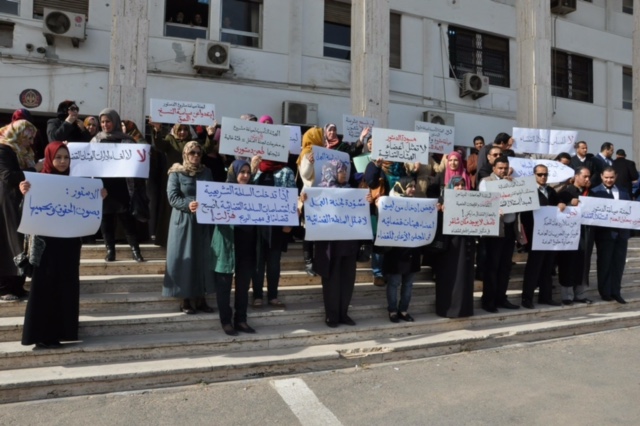By Sami Zaptia.

London, 10 February 2016:
The Central Bank of Libya (CBL) held a workshop with the World Bank last Thursday on . . .[restrict]the introduction of Islamic Sharia banking into the Libyan banking sector.
In the framework of coordination and cooperation with international institutions: Advisory Committee on Islamic Banking Affairs meets with World Bank Group …
Members of the CBL Advisory Committee on Islamic Banking Affairs met with a group of experts from the Middle East and North Africa department at the World Bank in order to develop a strategy for the introduction of Islamic banking to into the Libyan banking sector whilst taking into consideration the conditions and circumstances of the Libyan banking sector.
The capacity-building status of the sector at the level of commercial banks and supervision and control requirements at the Central Bank, and how to adopt best practices in the sector were all discussed.
The joint workshop comes within the framework of the technical assistance provided by the United Nations development program in Libya. The workshop was held as a complement to the discussion on the draft strategy presented by the World Bank Group in an earlier meeting on the subject.
It is worth mentioning that the Central Bank of Libya intends to involve all parties involved in the project of Islamic banking in Libya to discuss the finalized strategy for adoption a roadmap for the implementation of an Islamic banking strategy.
The aim is to ensure the good application and success of the Islamic banking project while maintaining the stability of the banking sector.
It will be recalled, and as reported then by Libya Herald, that the Islamic Sharia-compliant banking Law 46 was introduced by the National Transitional Council (NTC) with little prior public debate or preparation by the banking sector in 2012.
Most experts in the sector are of the view that the overnight cancellation of interest was too hasty and that Sharia-compliant banking should have been introduced and phased-in gradually. This would have enabled Libyan banks to build their know-how, expertise and capabilities – without disrupting the banking system or the economy. [/restrict]









